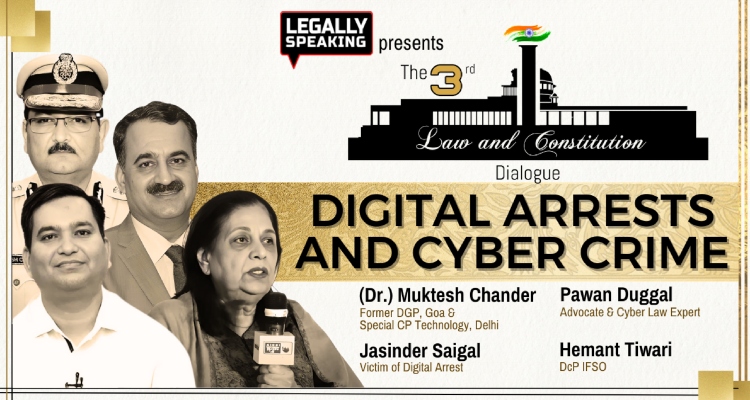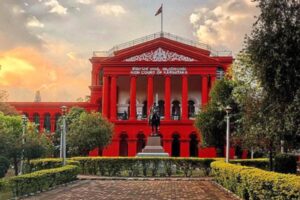
The Third Law and Constitution Dialogue recently brought together experts and victims to address the critical issue of digital arrests and cybercrime in India. The event featured insights from Dr. Muktesh Chander, Former DGP of Goa and Special CP Technology, Delhi; Pawan Duggal, Cyber Law Expert; Hemant Tiwari, DCP of the IFSO Unit; and Mrs. Jasinder Saigal, a victim of cyber fraud. They highlighted the urgent need for stronger safeguards against cyber threats and the implications of these crimes on individual freedoms, cybersecurity, and constitutional rights.
A Growing Threat: Digital Arrests and Cybercrime
In today’s technology-driven world, cybercrime has emerged as a significant threat to individuals and institutions. The panel shared alarming statistics, revealing the rise of sophisticated scams targeting unsuspecting victims. A particular focus was on “digital arrests,” where scammers impersonate authorities to extort money through fear and deception.
A Chilling Testimony: Mrs. Jasinder Saigal’s Ordeal
Mrs. Saigal, a 79-year-old victim, shared her harrowing experience. Scammers posing as Enforcement Directorate officials accused her of crimes like child trafficking and money laundering. Over five days, they manipulated her with threats, even claiming her property was under siege. Under immense pressure, Mrs. Saigal transferred ₹3.1 crores to fraudulent accounts. Her testimony exposed glaring systemic gaps, including her bank’s failure to flag suspicious transactions.
Systemic Failures and Legal Gaps
Cyber Law Expert Pawan Duggal highlighted the inadequacies of India’s legal framework in combating digital fraud. He stressed the need for stronger laws, improved enforcement, and public education to recognize and report cyber threats.
Role of Financial and Technological Institutions
Representatives from the banking and technology sectors acknowledged their role in tackling cybercrime. While they outlined steps to enhance fraud detection, they admitted the need for greater collaboration with law enforcement and judiciary to outpace evolving cybercriminal tactics.
Call for Collective Action
The event concluded with a call to action to address the growing menace of cybercrime. Experts emphasized strengthening legal protections, fostering cross-sector collaboration, and empowering citizens with knowledge.
Mrs. Saigal’s story serves as a sobering reminder of the consequences of inaction. Platforms like the Third Law and Constitution Dialogue play a pivotal role in raising awareness and driving systemic change to protect individuals and institutions in an increasingly digital world.
By bridging legal, technological, and institutional gaps, India can hope to turn the tide against cybercrime and ensure a safer digital future.




